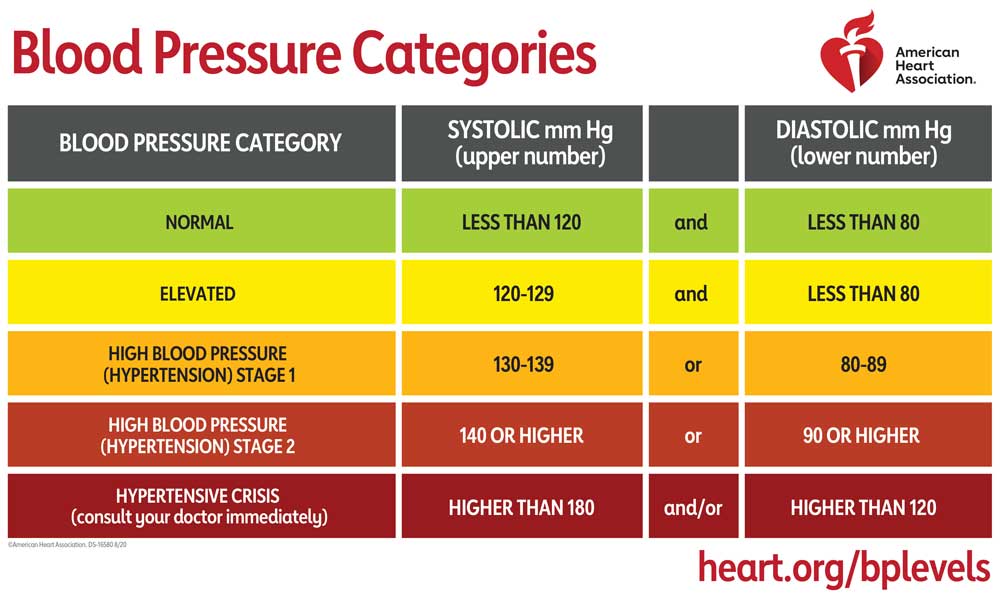Become a Healthier You with Better Sleep
We all love getting a good night’s rest, but have you considered sleep as an essential factor in your physical and mental health? While sleep is vital for a person’s well-being, many of us struggle to fall asleep when our head hits the pillow or wake up without getting any quality sleep. This struggle can leave us feeling tired during the day.
Sleep deficiency (lack of quality sleep) can lead to physical and mental health problems; chronic health issues like heart disease, high blood pressure, and obesity; and interfere with daily functions.¹ Not only is better sleep crucial to avoid sleep deficiency and many of its negative effects, but also your brain performance, mood, overall health, and quality of life will greatly benefit from getting better-quality sleep.
Tips for Better Sleep
Implement a Consistent Sleep Schedule
Better sleep over time comes down to consistency, so the first step to getting better sleep is getting accustomed to a regular sleep schedule. Go with a schedule that works with your biological clock and allows for enough sleep time. Start taking control of your sleep by trying these better sleep tips:
-
Wake up at the same time every day. Yes, even on the weekends. Being consistent reinforces the body’s sleep-wake cycle, and waking up at different times every day will throw off that cycle.² Make sure that your chosen wake-up time is achievable. Our biological clock shifts over our lifetime, so older adults are more likely to wake up early while teenagers tend to fall asleep and sleep in later due to a delayed sleep-wake rhythm. Choose a wake-up time that works with your individual biological clock.³
-
Get enough sleep. The recommended amount of sleep is 7-8 hours per night, but some individuals may need at least 9 hours of sleep every night. Allow for that time in your sleep schedule by going to bed early enough to still wake up at your chosen wake-up time.⁴
-
Ease into your target sleep schedule. If you are making larger changes to your sleep schedule, make small adjustments over time. This will help your sleep schedule be more sustainable in the long run.
Create the Optimal Sleep Environment
Even though you might be able to go to sleep in a bright and loud room, it doesn’t mean you should. Creating the right sleeping environment is crucial to getting quality rest. To fall asleep faster and stay asleep all night, it is important to focus on making your bedroom space comfortable and remove distractions.
-
Keep your room cool, dark, and quiet. No one finds it easy to get a good night’s rest when it’s too warm or when light is still peeking through the window. Turn down the temperature and invest in some room-darkening shades. Keep noise to a minimum to avoid unwanted disturbances once you’ve fallen asleep. When noise is inevitable (or you find that you can’t fall asleep if it’s too quiet), try using a fan, white noise machine, earplugs, or even headphones.⁵
-
Keep the bed a sleep-only zone. Our brains associate activities with where they occur. If you tend to watch television or work from bed, sleep can become hard to achieve in that space. Keep the bed separate from other daily activities to keep it a restful environment—that includes putting the electronic devices away when it is time for bed.
-
Promote relaxation before bed. Stress is inevitable and it’s really good at keeping us up at night. Try to check stress at the bedroom door by resolving any stress or worries you have before bedtime. If it can’t be resolved before bed, write it down for tomorrow so you don’t keep thinking about it. Before bed, try engaging in activities you find relaxing: read a book, listen to soothing music, take a hot bath, or maybe journal about your day.
Develop Healthy Eating Habits
Developing healthy sleep habits isn’t just about sleep itself. Your diet leading up to bedtime can heavily influence how long it takes you to fall asleep and the quality of your sleep.
-
Keep it light at night. Avoid eating large meals before bedtime. Falling asleep can be difficult if your body is still digesting a big meal, especially high-protein meals since protein takes longer to digest. Eating too late can also bring heart burn and acid reflux to bed with you, especially if you are eating spicy foods. This can lead to discomfort and a hard time falling asleep. Try to also limit fluids in the evening to avoid making unwanted trips to the bathroom overnight.
-
Be careful of hidden caffeine sources. While it is more obvious to not consume energy drinks and coffee before bed, there are other sources of caffeine that are less obvious and will leave you laying awake at night. Avoid snacking on chocolate and ice cream or sipping on non-cola sodas and decaffeinated coffee. Yes, contrary to its name, decaffeinated coffee often contains caffeine.⁶
-
Skip the alcohol for a better night’s sleep. While alcohol may help you fall asleep faster, the alcohol wearing off can wake you up in the middle of important stages of sleep, damaging your quality of sleep. In addition, alcohol can worsen sleep apnea symptoms and increase chances of sleep walking and sleep talking.⁶
Develop Healthy Habits During the Day
Incorporating a few small habits into your everyday daytime routine can help ensure a better night’s sleep each and every night.
-
Avoid daytime naps. Keep naps short (no more than one hour) to avoid interfering with your nighttime sleep.⁵
-
Incorporate physical activity. Physical activity promotes better sleep by helping us fall asleep faster and alleviating daytime sleepiness. Avoid exercising too close to bedtime though as it can give you an extra boost of energy and leave you lying awake.³
-
Get some light! Our internal clocks are regulated by our exposure to light, so it is important to expose ourselves to daylight early in the day.
No one likes lying awake at night and waking up exhausted. Incorporate these tips to promote better sleep habits and stay well rested!
Sources:
Blood Pressure and the Importance of Knowing Your Numbers.
What is Blood Pressure?
When your heart pumps blood through your arteries, the blood puts pressure on the artery walls, which is what is known as blood pressure. Arteries then carry the blood from your heart throughout your body (1). Blood pressure does fluctuate throughout the day, but having unusual high or low blood pressure can negatively affect your health in the long run which is why it’s important to know and understand your blood pressure numbers.
What do Blood Pressure Numbers Mean?
Blood pressure is measured using two numbers:
-
Systolic blood pressure measures the pressure in your arteries when your heart beats
-
Diastolic blood pressure measures the pressure in your arteries when your heart rests between beats
The numbers are then read with the systolic number over the diastolic number, or written as systolic/diastolic mmHg. For example, if your systolic blood pressure is 120 and your diastolic blood pressure is 80 it would be written as 120/80 mmHg (1).
The only way to know what your blood pressure numbers are is to get your blood pressure tested with a blood pressure monitor. Knowing and understanding your results is key to controlling unusual high blood pressure.
Blood Pressure Categories
The chart and information below is provided from the American Heart Association and explains the different categories of blood pressure numbers (2).

-
Normal: Blood pressure is considered in the normal category when the numbers are less than 120/80 mmHg.
-
Elevated: Blood pressure is considered elevated when readings consistently range from 120-129 systolic and less than 80 mmHg diastolic. If you fall in this category, you are likely to develop high blood pressure if no steps are taken to control the condition.
-
Hypertension Stage 1: This stage is when blood pressure consistently ranges from 130-139 systolic over 80 mmHg diastolic. At this stage, you will likely be advised to make some lifestyle changes and may be prescribed blood pressure medication.
-
Hypertension Stage 2: This stage is when blood pressure consistently ranges at 140/90 mmHg or higher. At this stage, you will likely be prescribed blood pressure medications and lifestyle changes.
-
Hypertensive Crisis: The hypertensive crisis requires medical attention. If your blood pressure readings suddenly exceed 180/120 mmHg, you could be experiencing a hypertensive crisis and should contact your doctor immediately.
If your blood pressure is higher than 180/120 mm Hg and you are also experiencing symptoms like chest pain, shortness of breath, back pain, numbness/weakness, change in vision or difficulty speaking, do not wait to see if your pressure comes down on its own. Call 911.
What Number is More Important?
Typically, the systolic blood pressure number is given more attention due to it being a major risk factor for cardiovascular disease for people over the age of 50. However, an elevation of either number may be used to make a high blood pressure diagnosis (2).
What Causes High Blood Pressure?
High blood pressure typically develops over time. One may develop high blood pressure due to reasons like unhealthy diet, physical inactivity, obesity, or alcohol and tobacco use. Blood pressure can also be caused by genetics and family history, so it’s important to let your doctor know if high blood pressure runs in your family (3).
What Problems does High Blood Pressure Cause?
High Blood Pressure can damage your health in many ways, especially if it’s left untreated. It can hurt important organs like your heart, brain, kidney, and eyes (1).
-
Heart Attack and Heart Disease: High blood pressure can damage your arteries by making them less elastic, which decreases the flow of blood and oxygen to your heart.
-
Stroke and Brain Problems: High blood pressure can also block the arteries that supply blood and oxygen to the brain, or cause those arteries to burst, which causes a stroke. Brain cells die during a stroke because they do not get enough oxygen, which can then cause disabilities in speech, movement, and other basic activities. A stroke can also be deadly.
-
Kidney Disease: Adults with diabetes, high blood pressure, or both have a higher risk of developing kidney disease, which is when the kidneys are damaged and cannot filter blood as well as they should (4).
What Can You Do to Prevent or Manage High Blood Pressure?
Many people can manage to keep their blood pressure in a healthy range by making some positive lifestyle changes, such as:
-
Getting at least 150 minutes of physical activity each week
-
Avoid tobacco use
-
Eating a healthy, well-balanced diet which limits sodium (salt) and alcohol
-
Keeping a healthy weight
-
Managing stress in a healthy way
In addition to making these changes, some people with high blood pressure may need to take medications to manage their blood pressure (1). And as always, talk to your pharmacist if you have any questions or concerns regarding blood pressure medications or managing your blood pressure numbers. Talk to your pharmacist today about if adding a supplement can help you, and ask us about our free blood pressure monitoring!
Sources
-
https://www.cdc.gov/bloodpressure/about.htm#whatdo
-
https://www.heart.org/en/health-topics/high-blood-pressure/understanding-blood-pressure-readings
- « Previous Page
- 1
- …
- 11
- 12
- 13
- 14
- 15
- …
- 62
- Next Page »
